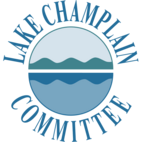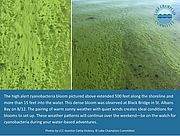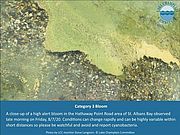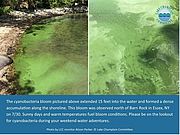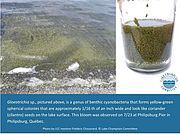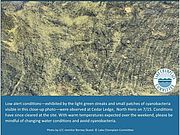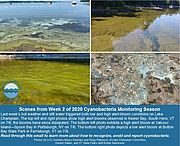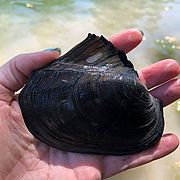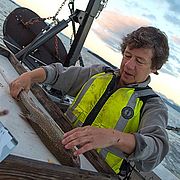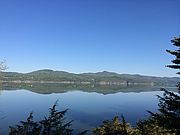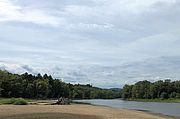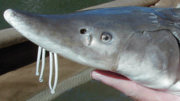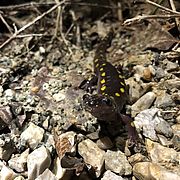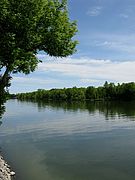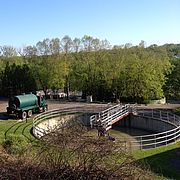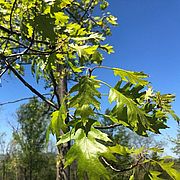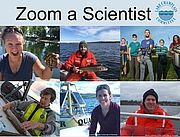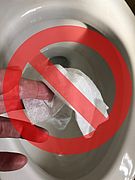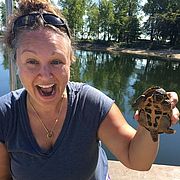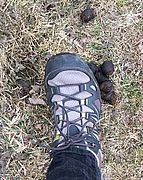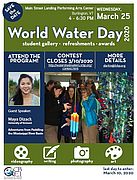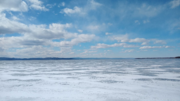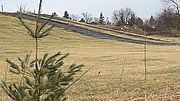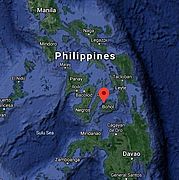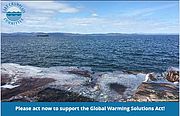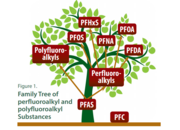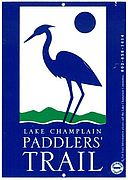It’s been a tumultuous week with hot weather, intense rains that flushed nutrients and partially treated wastewater to Lake Champlain, and some high winds that knocked out power. In the midst of it all cyanobacteria monitors collectively filed 212 reports from Saturday August 8 through 1:30 p.m. on Friday August 14! Read...
News from Selected Category
The Lake Champlain Committee (LCC) and partners received 186 monitor reports last week from August 1 through 4:00 p.m. Friday August 7, 2020. Good conditions were observed in Lake Champlain’s Missisquoi Bay, Malletts Bay and the South Lake while blooms were reported for areas of St. Albans Bay, the Inland Sea, Main Lake North, Main Lake Central, and Main Lake South. Mixed conditions continued in Lake Carmi. Read...
The Lake Champlain Committee (LCC) and partners received 154 monitor reports this past week from Saturday July 25 through 1:45 p.m. Friday July 31. Good conditions were observed in Lake Champlain’s Missisquoi Bay, Main Lake North, Malletts Bay and the South Lake while blooms were reported for areas of St. Albans Bay, the Inland Sea, Main Lake Central, and Main Lake South. Mixed conditions continued in Lake Carmi this week and Lake Raponda also experienced a low alert. Read...
We received 183 monitoring reports last week through Lake Champlain Committee (LCC) Cyanobacteria Monitoring Program from Saturday July 18 through mid-afternoon Friday July 24. Due to the high volume of reports and some technical issues we weren’t able to send you the compilation until today. Read...
It’s been another busy week for the Lake Champlain Committee (LCC) Cyanobacteria Monitoring Program with 152 reports from Lake Champlain and inland lakes from Sunday July 12 through Friday July 17 at 1:30 pm! Good conditions were observed in Malletts Bay and Missisquoi Bay, there was one alert report in Main Lake Central and one in Main Lake North with mixed alert conditions in St. Albans Bay, the Inland Sea, and Main Lake South. Lake Carmi also had cyanobacteria alerts. Read...
Thank you for signing up to receive the Lake Champlain Committee’s (LCC) cyanobacteria monitoring reports! Monitoring will run through the early fall. Each week we’ll send you an update about conditions our monitors are finding around Lake Champlain and several inland lakes. This week’s report covers results from Sunday July 5 through late afternoon Saturday July 11. We had 159 reports that ranged from clear water conditions (perfect for cooling off in) to turquoise blooms that closed down access areas. Future reports will generally be sent to you on Fridays. Read...
If you’ve paddled, taken a swim, or cast a fishing line in the waterbodies of the Lake Champlain Basin, you’ve likely spent time among one of the most enigmatic groups of aquatic animals in our region: native freshwater mussels. They’re quirky—sporting hatchet-like shells and traveling by a single fleshy foot, yet familiar—related to the invasive zebra mussel and edible bivalves such as littleneck clams and scallops. Read...
Did you miss a “Zoom a Scientist” session? Don't worry! All the webinars are recorded and can be accessed via Youtube! Want to learn more about microplastics, climate change, or aquatic invasive species? Wonder how prepared we are for an oil spill or what fish do in winter? Curious about how scientists use drones and photogrammetry to learn about the lake? Read...
Vermont environmental advocates sent a letter to Governor Phil Scott on 4/6/20 thanking him for his efforts to address the unprecedented COVID-19 emergency, and urging him to uphold environmental and public health protections during the crisis, along with public accessibility and transparency.
Read...May is American Wetlands Month! Join us in celebrating our wetland wonders, from swamps and shores to floodplain forests and fens. Check out the LCC Facebook page where we’ve been posting about a different Lake Champlain watershed wetland every week. Read...
Lake sturgeon can be unintentionally caught by anglers during May and June as they head upstream to spawn in the waters where they were born. The stress incurred from being hooked can inhibit their ability to reproduce. Lake sturgeon are a threatened species in New York and an endangered species in Vermont. There is no open season for lake sturgeon and possession is prohibited, so anglers should not be targeting these rare fish. Read...
Conservation Biologist Steve Faccio of the Vermont Center for Ecostudies (VCE) visits a local vernal pool each week throughout the spring of 2020. In a series of seven short videos taken from April 1 through May 8 he introduces viewers to the defining characteristics of vernal pools, discusses the overwintering and breeding activities of wood frogs, and provides an underwater tour of salamander eggs, fairy shrimp, tadpoles, Caddisfly larvae, and Eastern Newts. Read...
"From Lake Champlain to the Richelieu River and the St. Lawrence, a panel of Canadian experts explores our connections and common interests in our water. Saving Our Waters is a documentary series covering steps toward keeping our waterways clean; the impacts of phosphorus and other contaminants; and using the science behind the issues to derive solutions that have positive impact on our communities." Read...
Look no further than the vast system of pipes beneath our feet—sewers—for an alternative to monitoring for viruses like COVID-19 person by person. Wastewater could provide localized data about coronavirus levels and create an early warning system for future outbreaks. In Detroit, MI, for example, an outbreak of hepatitis A was detected a week in advance of an increase in confirmed cases, by extracting the genetic material from the wastewater. Read...
Entomologist Douglas Tallamy is urging Americans “to go native and go natural” and move away from the monoculture of a lawn. He’s an advocate for native plants as a way of preserving North America’s natural ecology. His recommendations for rewilding the country include: Read...
We hope you’re healthy and finding ways to nurture yourself during these challenging times. We are looking forward to diving into the lake to refresh our spirits once temperatures warm and travel restrictions ease. In the meantime, we thought we’d share the expanded line up of “Zoom a Scientist” programs that our friends at Lake Champlain Sea Grant have put together. You can tune in virtually through Zoom every Tuesday and Friday from noon to 1:00 p.m. to learn more about the lake!
Read...As we all work to address the Covid-19 pandemic, keep in mind that wipes clog pipes, even if they are marketed as “flushable.” Click here to read the New York Times article about backed-up sewer lines in the wake of the coronavirus.
Read...Over the next few weeks, our friends at Lake Champlain Sea Grant are hosting "Zoom a Scientist," an interactive, virtual webinar series focused on watershed and aquatic science. The programs will feature scientists from the University of Vermont Rubenstein Ecosystem Science Laboratory, SUNY Plattsburgh, the Lake Champlain Research Institute, and other organizations. Every Tuesday and Friday from noon until 1:00 p.m. scientists will lead viewers through the Lake Champlain watershed and share their research.
Read...Deserted dog doo is a nasty addition to the bottom of an innocent passersby’s shoe—and to Lake Champlain. Canine feces left on hard surfaces like a sidewalk or compacted soil can wash into storm drains during any precipitation event. From there, they enter streams or the lake, which nearly 200,000 people rely on for their drinking water. Most pet owners conscientiously clean-up after their dogs, but those who don’t create an issue for people and waterways.
Read...Know a K through 12 student, teacher or homeschooler in the Lake Champlain Basin? In honor of World Water Day, LCC and Champlain Basin Education Initiative (CBEI) partners are hosting our annual cool contest to celebrate water. It’s a great way for educators to integrate art and science with their students.
Read...If your faucet drips or your toilet runs it can waste over 10,000 gallons a year ― the amount of water in a typical backyard swimming pool. More than one trillion gallons of water are lost annually in the U.S. due to easy-to-fix household leaks.
Read...The freeze over of Lake Champlain is a celebrated event. Due to warming winter temperatures, the lake does not ice over as often as it did 20 years ago, making this phenomenon special. Though the lake froze over last year (closure date of March 8), as well as in 2014 and 2015, chances are Lake Champlain will not freeze over in 2020.
Read...The plastic bag ban in New York State begins Sunday, March 1, 2020! Whether floating on a local waterway or stuck in a tree, plastic bags are a too common sight and blight on the landscape and in the water. Do your part to reduce plastic pollution and bring your own bag from the start.
Read...The Lake Champlain Committee (LCC) is no stranger to defending Vermont’s clean water laws. In December 2019, LCC was part of a coalition of environmental organizations that issued a press release on the unlawful emergency exemptions for farm manure spreading that result in pollution discharges into nearby waters.
Read...Photosynthetic bacteria, gelatin, and concrete are the building blocks of a new type of material: living concrete! Researchers at the University of Colorado, Boulder, funded by the Department of Defense, formed the new substance. Minerals in the concrete are deposited by cyanobacteria; in contrast to the typical greenhouse gas-emitting process required in the production of regular concrete, cyanobacteria absorb carbon dioxide through the photosynthetic process.
Read...As the seas rise higher, low lying islands and coastal areas are continually threatened by floods. Batasan, an island in the Philippines, is no exception. In 2013, a major earthquake (7.2 magnitude) hit the island, causing it to collapse downward.
Read...The Vermont Global Warming Solutions Act (GWSA - H.688) will be on the House floor tomorrow, February 20 for a crucial vote. The bill sets binding targets and holds the state accountable to develop and implement a plan to meet Vermont’s commitment to the Paris Climate Accord by 2025 and achieve net-zero carbon emissions by 2050.
Read...Recognizing that climate change poses an existential threat to Lake Champlain water quality, LCC was among 30 diverse organizations to present a policy plan of action to Vermont leaders in January. Since 2006, the state has had statutory goals to cut carbon pollution but we are very far from meeting them. Vermont is falling behind its Northeast neighbors in making pollution reductions, in part because the state lacks requirements to do so.
Read...Earlier this month Jared Carpenter, LCC’s Water Protection Advocate, joined with colleagues from the Vermont Conservation Voters, Vermont Natural Resource Council and other organizations to present the 2020 Environmental Common Agenda. The Common Agenda represents priorities of environmental groups across Vermont who are working to engage policy makers and citizens on important issues that affect water, air, land, wildlife, communities and health.
Read...A grant from outdoor gear co-op REI will enable LCC to purchase signage for Lake Champlain Paddlers’ Trail sites, update website content, and produce informational materials about the Trail. The funds will also cover a touring kayak and related gear for LCC field programs. “This REI grant will help us publicize the Trail, re-sign locations and upgrade our equipment,” notes LCC Executive Director Lori Fisher. “We’re grateful for the support to advance our stewardship.” REI will also be partnering with LCC on April Stools’ Day and aquatic invasive species assessments.
Read...